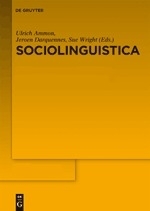Abstract
The world is connecting in many complex ways, driven by the globally integrated nature of technological innovation and human mobility across continents. Never before have so many different speakers and languages existed side by side in the OECD countries as they do today. This reality has placed multilingualism in the spotlight. Increased migration and transcultural flows across borders in Europe have highlighted the urgency for research on multilingualism in the individual and society. Academic institutions have recognized the necessity for such knowledge and research centers have evolved to meet this challenge (cf. Obermayer et al. 2014). MultiLing - the Center for Multilingualism in Society across the Lifespan is a research center aimed at academic excellence and financed by the Research Council of Norway through its Center of Excellence scheme. MultiLing is hosted by the Department of Linguistics and Scandinavian Studies at the Faculty of Humanities of the University of Oslo in Norway. It opened in June of 2013 and is currently in its first five-year period of operation.
The main goal of the Center is to generate state-of-the-art scientific knowledge on individual and societal multilingualism across the lifespan that will address the challenges and potentials multilingualism poses for the individual in the family, school, other institutions, and society in general. Moreover, the Center aims at providing research-based knowledge on multilingualism to central policymakers and stakeholders. Language planning and the standardization of languages are some of the Center’s key research foci and are indeed vital issues today at the top of the agenda for policymakers.
The Center’s vision is to contribute to how society can deal with the challenges of multilingualism through increased knowledge, promoting agency for individuals in society, and a better quality of life, no matter what linguistic and social background.
